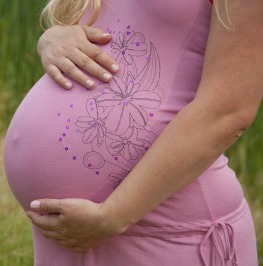 Anemia is very common during pregnancy due to the increased blood flow in a woman’s body. Your doctor will test your blood during your first prenatal visit to ensure that you aren’t anemic at the beginning of your pregnancy. When a woman is pregnant, her body will produce up to 50 percent more blood than before pregnancy. Without iron in your blood, your body is unable to produce enough hemoglobin. Many women have plenty of iron stored up in their body; however, the demands of pregnancy increase your need for additional iron during your second and third trimester and starts depleting your iron reserves rapidly. Once all of the iron is depleted from your body you will become anemic.
Anemia is very common during pregnancy due to the increased blood flow in a woman’s body. Your doctor will test your blood during your first prenatal visit to ensure that you aren’t anemic at the beginning of your pregnancy. When a woman is pregnant, her body will produce up to 50 percent more blood than before pregnancy. Without iron in your blood, your body is unable to produce enough hemoglobin. Many women have plenty of iron stored up in their body; however, the demands of pregnancy increase your need for additional iron during your second and third trimester and starts depleting your iron reserves rapidly. Once all of the iron is depleted from your body you will become anemic.
Note: I am not a doctor, nurse, or health care provider. This post is for informational purposes only and never should replace getting medical treatment for you and your unborn baby.
Don’t Panic If Your Doctor Tells You That You Are Anemic During Your Pregnancy
If you have had severe morning sickness during the first trimester, back to back pregnancies, heavy menstrual periods before pregnancy, having multiples, can’t stomach your prenatal vitamins that contain iron, or don’t eat a diet that is rich in iron your chances of becoming anemic during pregnancy significantly increase. To help prevent iron deficiency during your pregnancy, try to increase your daily iron intake and if possible take your prenatal vitamins or iron supplements as directed by your doctor, midwife, or health care provider. Your doctor, midwife, or health care professional generally draws your blood towards the end of your second and the beginning of your third trimester to determine if your showing any signs of anemia. They generally see a decrease in the amount of hemoglobin in the plasma during this blood draw but they are looking for a significant decrease or a low hemoglobin count.